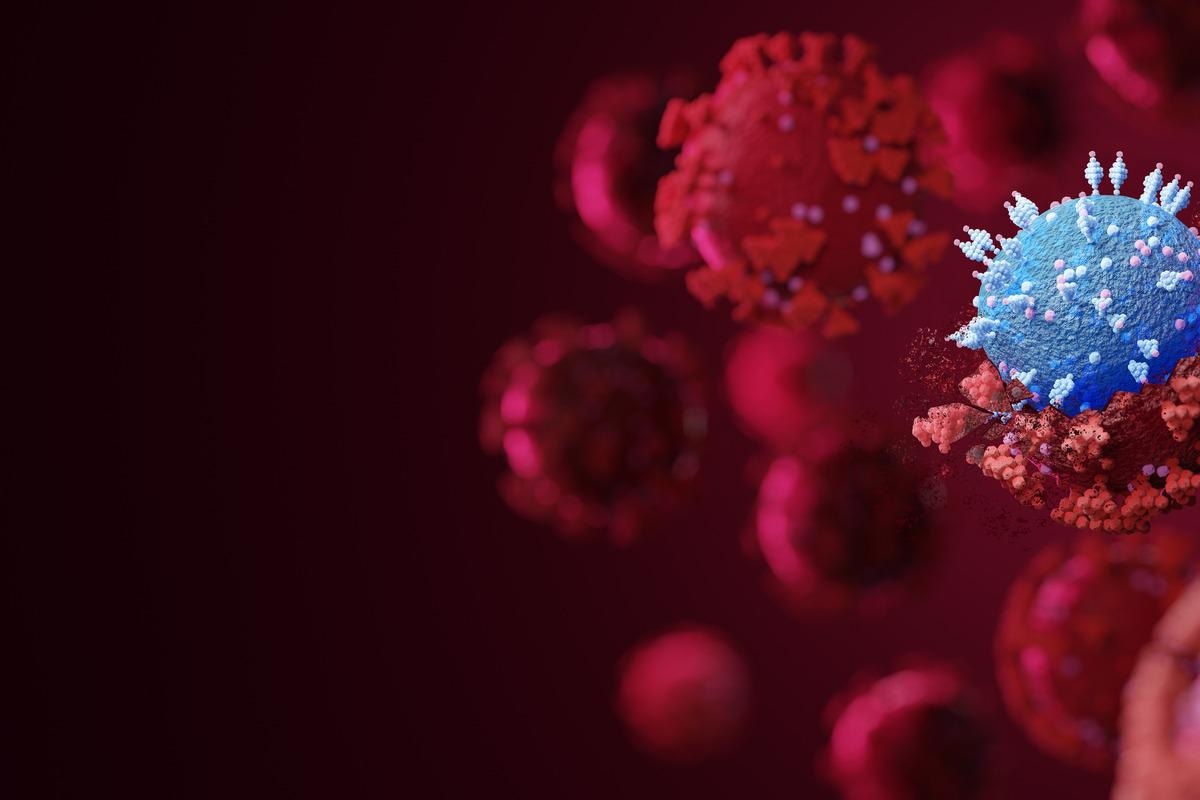In a recent study posted to the preprint server bioRxiv*, researchers examined the spike (S) protein of the severe acute respiratory syndrome coronavirus 2 (SARS-CoV-2) Omicron variant and compared it to other SARS-CoV-2 variants. The findings showed that although Omicron shows significant immune evasion compared to other SARS-CoV-2 variants, it is possible to restore antibody neutralization capacity by immunization with mRNA vaccine booster doses.
 Study: Neutralization and Stability of SARS-CoV-2 Omicron Variant. Image Credit: Fit Ztudio/Shutterstock
Study: Neutralization and Stability of SARS-CoV-2 Omicron Variant. Image Credit: Fit Ztudio/Shutterstock
The SARS-CoV-2 B.1.1.529 variant (Omicron) was first reported in South Africa and was declared a variant of concern soon after. The high number of mutations, including nearly 40 mutations in its spike (S) protein, compared to about 10 mutations in other variants, is a huge cause of concern. Previous studies show that some of these RBD mutations can help the variant evade vaccine-induced immunity, while other mutations have not been characterized yet. Although reports on the frequencies of the Omicron variant suggest a higher transmission rate compared to other SARS-CoV-2 variants, the transmissibility, and the extent of resistance to vaccine-induced immunity of this variant are not well understood.

 *Important notice: bioRxiv publishes preliminary scientific reports that are not peer-reviewed and, therefore, should not be regarded as conclusive, guide clinical practice/health-related behavior, or treated as established information.
*Important notice: bioRxiv publishes preliminary scientific reports that are not peer-reviewed and, therefore, should not be regarded as conclusive, guide clinical practice/health-related behavior, or treated as established information.
The study and findings
Researchers of the present study examined the S protein of the Omicron variant and compared it to other SARS-CoV-2 variants using a pseudotyped lentivirus system. They first analyzed infectivity using HEK293T-ACE2 and lentivirus pseudotypes as target cells and found that the infectivity of Omicron was comparable to that of other major variants, all of which exhibited lower infectivity than the ancestral D614G. However, in human lung epithelia-derived CaLu-3 85 cells, the Omicron variant showed reduced infectivity compared to D614G.
Next, the researchers examined the immune escape capability of Omicron against vaccine-induced neutralizing antibodies, which is an important measure of protection from infection. They collected sera from 48 health care workers (HCWs) three to four weeks after their second vaccine dose of either Pfizer/BioNTech BNT162b2 (n = 28) or Moderna mRNA-1273 (n = 20) and compared the neutralization resistance of Omicron to the other variants of concern.
The Omicron variant showed significantly more (22.9-fold) neutralization resistance compared to ancestral D614G, with the Alpha (1.2-fold), Beta (4.4-fold), and Delta (2.0-fold) variants, respectively. Overall, only 13 out of 48 (27.1%) HCWs had detectable (NT50 < 80) nAb titers against the Omicron variant). However, many HCWs showed strong nAb titers against Omicron, and the Moderna mRNA-1273 vaccine slightly outperformed Pfizer/BioNTech BNT162b2 in inducing nAbs against Omicron.
On examining Omicron’s resistance to vaccine-induced immunity along with D614G, Alpha, Beta, and Delta variants in 23 HCWs one to 11 weeks after booster vaccination, the researchers found that booster doses increased the nAb NT50 titer against all the variants and significantly restored neutralizing antibodies against Omicron. This shows that in addition to enhancing nAb titers, booster doses also enhance the coverage of the nAb response, including the Omicron. HCWs who received Pfizer/BioNTech BNT162b2 booster showed slightly higher nAb titers compared to those who received Moderna mRNA-1273 booster dose.
Next, the nAb resistance of the Omicron variant and other major variants was assessed in serum samples collected from ICU (n = 9) and hospitalized non-ICU (n = 9) patients during the 2020/D614G wave of the pandemic before vaccination. The results showed that Omicron was fully resistant to the D614G wave serum samples and only 22.2% (2/9) of ICU patients and 11.1% (1/9) of hospitalized patients showed a threshold of nAb titers.
In order to understand the impact of the Omicron mutations on viral binding to the ACE2 receptor, the authors transfected HEK293T cells with variant spike constructs and measured the S surface expression along with the soluble ACE2 (sACE2) binding capacity using flow cytometry. The Omicron variant showed a slight reduction in S expression levels, whereas they were comparable in the Alpha, Beta, and Delta variants, relative to D614G. They also found that the Omicron spike protein exhibited reduced furin cleavage, ACE2 binding, and cell-cell fusion compared to the ancestral D614G.
Conclusion
This study shows that although the Omicron variant exhibits significant immune escape compared to other SARS-CoV-2 variants, antibody neutralization can be largely restored with booster doses of mRNA vaccines. The authors also demonstrate that the Omicron spike protein shows reduced receptor binding, S1 subunit shedding, cell-cell fusion, but increased cell-to-cell transmission. Also, homology modeling suggests a more stable closed S structure in this new VOC.
The study findings illustrate Omicron’s dual immune evasion strategies - a result of altered epitopes and reduced exposure of the S protein RBD - and enhanced transmissibility due to improved stability of the S protein. Taken together, these findings highlight the significance of booster vaccine doses in maintaining protection against the Omicron variant. They also offer mechanistic insights into the modified functionality of the Omicron S protein.

 *Important notice: bioRxiv publishes preliminary scientific reports that are not peer-reviewed and, therefore, should not be regarded as conclusive, guide clinical practice/health-related behavior, or treated as established information.
*Important notice: bioRxiv publishes preliminary scientific reports that are not peer-reviewed and, therefore, should not be regarded as conclusive, guide clinical practice/health-related behavior, or treated as established information.